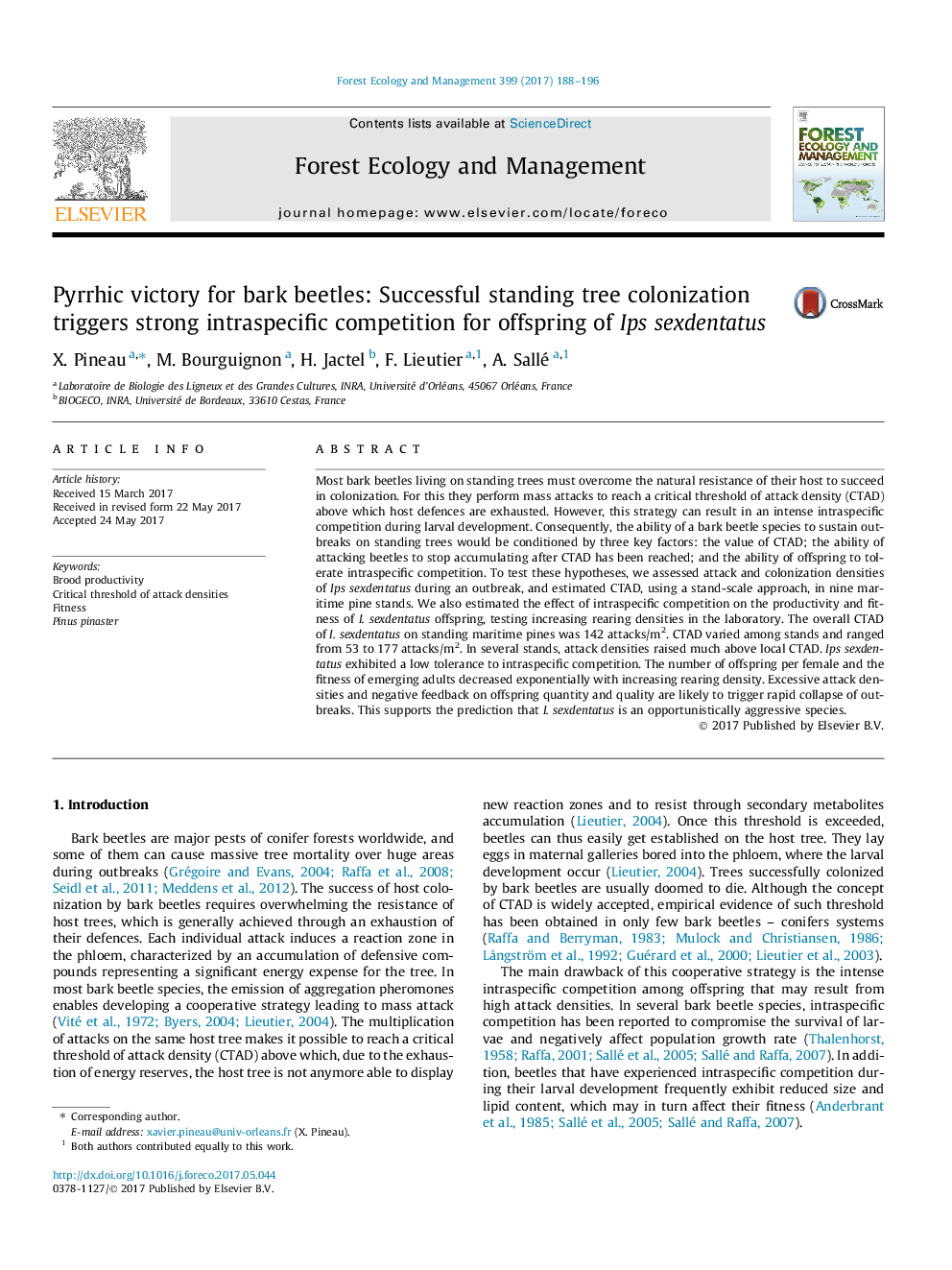| کد مقاله | کد نشریه | سال انتشار | مقاله انگلیسی | نسخه تمام متن |
|---|---|---|---|---|
| 4759379 | 1421359 | 2017 | 9 صفحه PDF | دانلود رایگان |
عنوان انگلیسی مقاله ISI
Pyrrhic victory for bark beetles: Successful standing tree colonization triggers strong intraspecific competition for offspring of Ips sexdentatus
ترجمه فارسی عنوان
پیروزی برای سوسک های پوست: استقرار مستعمرات مستعمل درختان موفق باعث رقابت شدید درون فردی برای فرزندان جنین های جنسی می شود
دانلود مقاله + سفارش ترجمه
دانلود مقاله ISI انگلیسی
رایگان برای ایرانیان
کلمات کلیدی
موضوعات مرتبط
علوم زیستی و بیوفناوری
علوم کشاورزی و بیولوژیک
بوم شناسی، تکامل، رفتار و سامانه شناسی
چکیده انگلیسی
Most bark beetles living on standing trees must overcome the natural resistance of their host to succeed in colonization. For this they perform mass attacks to reach a critical threshold of attack density (CTAD) above which host defences are exhausted. However, this strategy can result in an intense intraspecific competition during larval development. Consequently, the ability of a bark beetle species to sustain outbreaks on standing trees would be conditioned by three key factors: the value of CTAD; the ability of attacking beetles to stop accumulating after CTAD has been reached; and the ability of offspring to tolerate intraspecific competition. To test these hypotheses, we assessed attack and colonization densities of Ips sexdentatus during an outbreak, and estimated CTAD, using a stand-scale approach, in nine maritime pine stands. We also estimated the effect of intraspecific competition on the productivity and fitness of I. sexdentatus offspring, testing increasing rearing densities in the laboratory. The overall CTAD of I. sexdentatus on standing maritime pines was 142 attacks/m2. CTAD varied among stands and ranged from 53 to 177Â attacks/m2. In several stands, attack densities raised much above local CTAD. Ips sexdentatus exhibited a low tolerance to intraspecific competition. The number of offspring per female and the fitness of emerging adults decreased exponentially with increasing rearing density. Excessive attack densities and negative feedback on offspring quantity and quality are likely to trigger rapid collapse of outbreaks. This supports the prediction that I. sexdentatus is an opportunistically aggressive species.
ناشر
Database: Elsevier - ScienceDirect (ساینس دایرکت)
Journal: Forest Ecology and Management - Volume 399, 1 September 2017, Pages 188-196
Journal: Forest Ecology and Management - Volume 399, 1 September 2017, Pages 188-196
نویسندگان
X. Pineau, M. Bourguignon, H. Jactel, F. Lieutier, A. Sallé,
